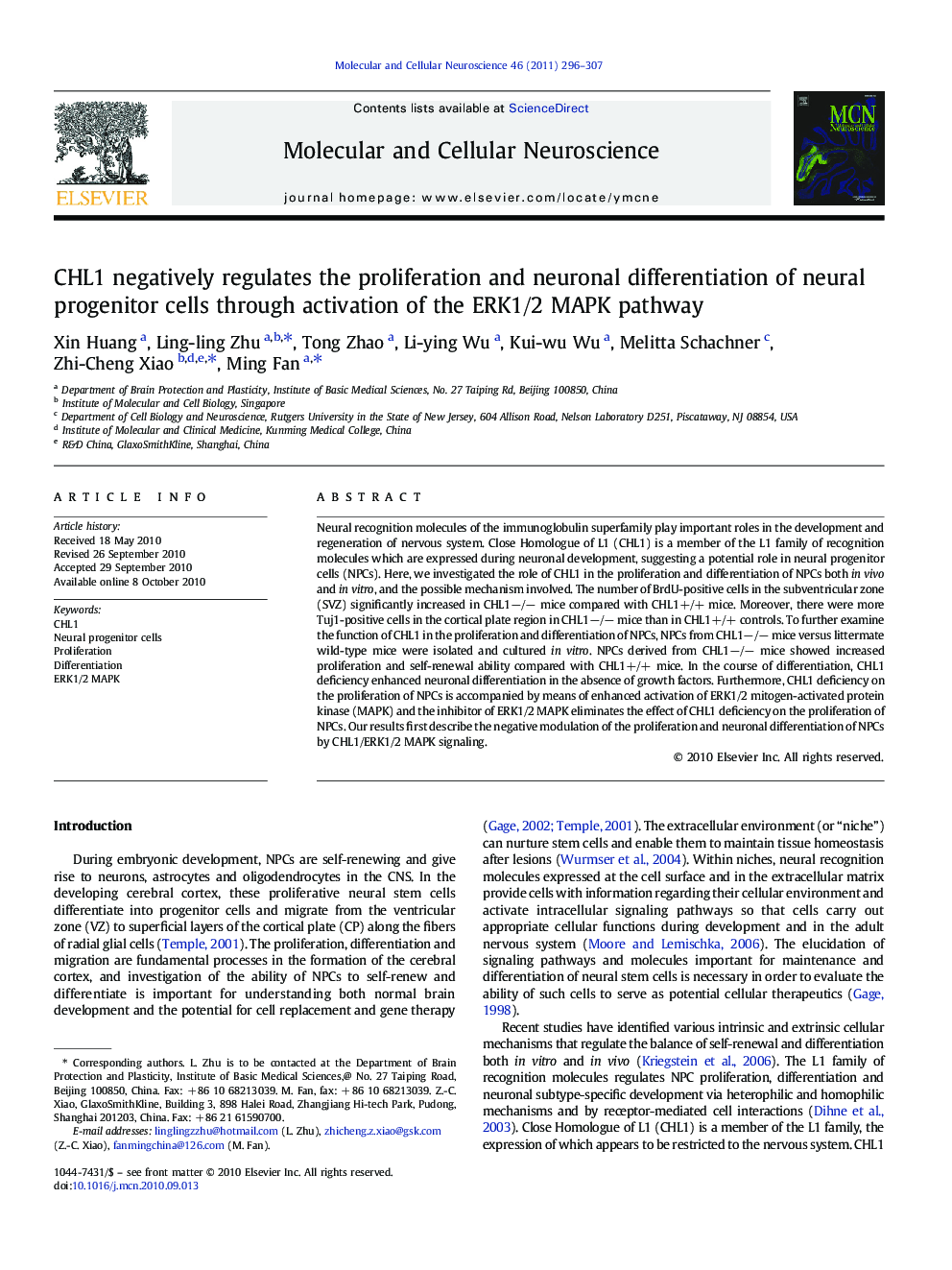| Article ID | Journal | Published Year | Pages | File Type |
|---|---|---|---|---|
| 10956646 | Molecular and Cellular Neuroscience | 2011 | 12 Pages |
Abstract
Neural recognition molecules of the immunoglobulin superfamily play important roles in the development and regeneration of nervous system. Close Homologue of L1 (CHL1) is a member of the L1 family of recognition molecules which are expressed during neuronal development, suggesting a potential role in neural progenitor cells (NPCs). Here, we investigated the role of CHL1 in the proliferation and differentiation of NPCs both in vivo and in vitro, and the possible mechanism involved. The number of BrdU-positive cells in the subventricular zone (SVZ) significantly increased in CHL1â/â mice compared with CHL1+/+ mice. Moreover, there were more Tuj1-positive cells in the cortical plate region in CHL1â/â mice than in CHL1+/+ controls. To further examine the function of CHL1 in the proliferation and differentiation of NPCs, NPCs from CHL1â/â mice versus littermate wild-type mice were isolated and cultured in vitro. NPCs derived from CHL1â/â mice showed increased proliferation and self-renewal ability compared with CHL1+/+ mice. In the course of differentiation, CHL1 deficiency enhanced neuronal differentiation in the absence of growth factors. Furthermore, CHL1 deficiency on the proliferation of NPCs is accompanied by means of enhanced activation of ERK1/2 mitogen-activated protein kinase (MAPK) and the inhibitor of ERK1/2 MAPK eliminates the effect of CHL1 deficiency on the proliferation of NPCs. Our results first describe the negative modulation of the proliferation and neuronal differentiation of NPCs by CHL1/ERK1/2 MAPK signaling.
Related Topics
Life Sciences
Biochemistry, Genetics and Molecular Biology
Cell Biology
Authors
Xin Huang, Ling-ling Zhu, Tong Zhao, Li-ying Wu, Kui-wu Wu, Melitta Schachner, Zhi-Cheng Xiao, Ming Fan,
